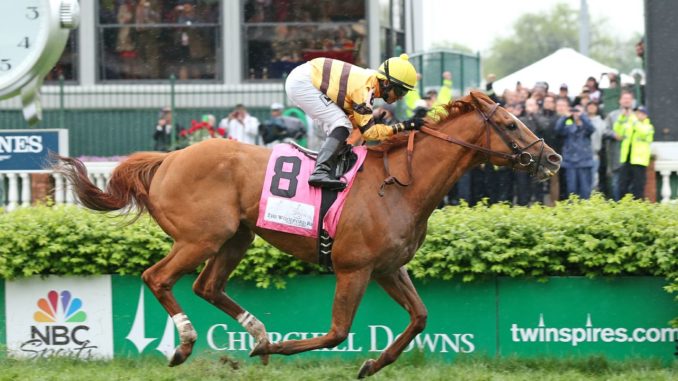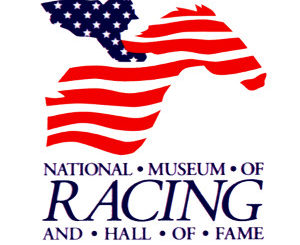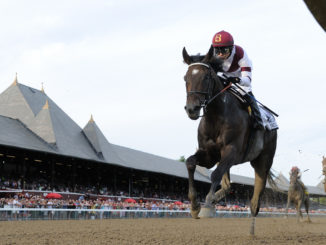
Almost by definition, every horse, trainer, and jockey nominated for induction into racing’s Hall of Fame is worthy of inclusion…eventually.
In years past, voters were required to be more selective in their choices as previous rules limited the number of inductees per year. Nowadays, voters can support as many nominees as they desire. The only requirement for induction is that nominees receive the support of more than 50 percent of those who cast ballots.
The National Museum of Racing and Hall of Fame on Monday announced that six equines would be on the 2020 ballot. Four — Blind Luck, Havre de Grace, Kona Gold, and Rags to Riches — have been on the ballot before. The two newcomers are Wise Dan and Game On Dude.
Wise Dan, a two-time Horse of the Year in 2012-13 who also won divisional championships as turf male and older male those years, would appear a slam-dunk in the voting. Not only one of the best turf milers this country has ever produced, Wise Dan is undoubtedly one of America’s best turf horses ever, period. His 15-for-16 record on the grass is a marvel to recall.
Game On Dude, by comparison, is a tougher sell. Although one of the country’s leading older dirt performers over several seasons in the early 2010s, his habit of not maintaining that form all the way through the Breeders’ Cup Classic (G1) arguably cost him a couple championships, perhaps even the Horse of the Year honors that instead went to Wise Dan.
There are no Hall of Fame requirements that a horse must have won at least one division title, though some traditionally-minded members of the electorate might balk at Game On Dude’s candidacy on that score. Ancient Title, Best Pal, and Lava Man are recent examples of California-based older horses inducted without an Eclipse Award to their credit, so Game On Dude’s eventual induction, if not this year then later, is perhaps a formality.
The careers of Blind Luck and Havre de Grace were so intertwined that it would be a shame if they were not inducted together, whenever that day might be. Although Havre de Grace one-upped Blind Luck by earning Horse of the Year honors in 2011, courtesy of her division-transcending win against males in the Woodward (G1), Blind Luck won the championship battle at age three and out-finished Havre de Grace in four of their six career meetings, including the epic final one in the 2011 Delaware H. (G2). In one of the great modern rivalries, these two were separated by a margin of a neck or less in four of their showdowns.
The fact her career was limited to just seven starts works against her, but Rags to Riches still remains only the third filly ever to win the Belmont S. (G1) and the only one since 1905. Not only was her 2007 victory historic from that perspective, but it came at the direct expense of Curlin, that season’s best 3-year-old colt and eventual Horse of the Year. Curlin later repeated as Horse of the Year in 2008 and is in the Hall of Fame.
Kona Gold is again attempting to become one of the few sprint specialists ever inducted into the Hall of Fame. Most of those that have, and that competed in the championship-voting era (1936-present), have been fillies (e.g. Ta Wee, Safely Kept, Xtra Heat), with two-time champion Housebuster the only male so honored.
Kona Gold himself was voted champion in 2000, but was he literally better than every other male sprint champion considered (or bypassed) through the years for Hall of Fame induction? As a gelding longevity worked in his favor, but the overall point is debatable.



